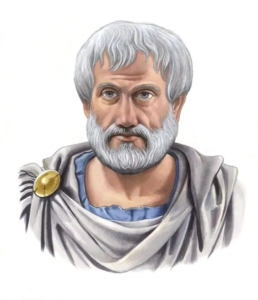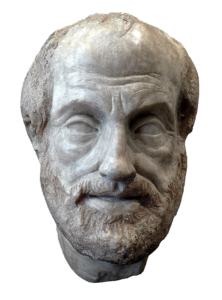Why Is Aristotle Still Studied Today? A Timeless Thinker’s Relevance
The Soul Behind the Sword: Aristotle, Alexander, and the Human Drama That Shaped History

The stone steps of Mieza were still cool with morning dew when 13-year-old Alexander sprinted up the path, leather sandals slapping against marble. In the shadowed grove, his new tutor sat waiting—a man whose intense gaze seemed to see past the prince’s fine tunic to the restless spirit beneath. Aristotle didn’t rise like other courtiers. Instead, he pushed a clay tablet across the stone bench: “Why should a king fear philosophy?”
Young Alexander froze. This wasn’t the groveling scholar he’d expected. This man demanded engagement.
“Philosophy reveals shadows in the soul,” Aristotle continued softly. “Do you fear what we might find in yours?”
Alexander’s hand hovered over the stylus. In that charged silence, history held its breath.
I. The Classroom Where Legends Were Human
The Boy Behind the Legend
Beneath Aristotle’s stern exterior lay unexpected tenderness. He noticed how Alexander’s eyes lit up at Homer’s battle scenes but dimmed during mathematics. The philosopher adapted—using spear angles to teach geometry, calculating supply routes to demonstrate arithmetic.
“Your father sends reports,” Aristotle murmured one afternoon as Alexander struggled with ethics. “He says you weep after sacrificing your favorite stallion to the gods.”
Alexander flushed crimson. “A king shouldn’t—”
“—shouldn’t feel?” Aristotle interrupted. “Even Achilles grieved Patroclus. Tears water the roots of courage.”
The Mentor’s Hidden Struggles
Unknown to Alexander, Aristotle was grieving too. Letters from Athens told of his wife Pythias’ worsening illness. Some nights, the great philosopher sat alone in Mieza’s olive groves, whispering verses from his lost love’s favorite poem:
“As the swallow’s cry pierces the dusk,
So your absence cuts deeper than Persian steel…”
He channeled this pain into teaching. When Alexander rashly declared “I’ll conquer all lands!”, Aristotle didn’t lecture. He brought out a tortoise.
“Observe,” he said, placing the creature in Alexander’s palm. “Its world is this hand. Does it rage against its limits? Or master the terrain it’s given?”
II. Aristotle: When Love Collided With Principle
Aristotle – Wedding That Broke a Father’s Heart
Alexander’s 327 BCE marriage to Roxana wasn’t just political theater. The Macedonian court gasped when he knelt to wash her feet—a Persian groom’s ritual. Aristotle received the report in Athens, his hand trembling as he read:
“He wore striped trousers like a barbarian prince. Kissed her before the altar like a commoner.”
That night, Aristotle poured unmixed wine—a breach of his own moderation rules. He pictured the fierce boy who’d once whispered: “Your lessons are my armor.” Now that boy was erasing every boundary Aristotle held sacred.
The Terrible Silence
After Alexander executed Aristotle’s nephew Callisthenes for opposing Persian customs, the philosopher didn’t rage. He sent no condemnation. He simply stopped writing.
For months, Alexander awaited his mentor’s counsel as he marched through Hindu Kush. None came. At night in his campaign tent, the conqueror of nations would unroll a battered papyrus—Aristotle’s notes on virtue—tracing the ink strokes like a blind man reading Braille.
General Ptolemy found him once, weeping over the scroll. “He was my compass,” Alexander choked. “Now I navigate by dead stars.”
III.Unexpected Legacies
What Alexander Taught Aristotle
The philosopher privately revised his life’s work after seeing Alexander’s multicultural army thrive. In later editions of Politics, he softened his claim that “barbarians are slaves by nature”, adding:
“Yet as water shapes itself to any vessel, so may human nature exceed its origins when touched by noble instruction.”
The Keepsakes That Spoke Louder Than Words
When Alexander died, his personal effects included:
- Aristotle’s annotated Iliad, bloodstained at Gaugamela
- A pressed carnation from Mieza in a bronze case
- A child’s wax tablet with Aristotle’s handwriting: “Courage balanced by wisdom“
Meanwhile, in Aristotle’s study, servants found strange artifacts: a Bactrian saddle, a sketch of Indian pepper plants, and a small jar labeled “Dust from the Royal Road—sent by A.”
IV. The Last Lesson

Aristotle was gathering figs when the messenger came. The old philosopher listened silently to news of Alexander’s death, then continued placing fruit in his basket with meticulous care. Only when alone did he break—clutching a letter Alexander sent years earlier:
“Master—
The Indus crocodiles are armored like your tortoise but eat goats whole. I’ve enclosed teeth. Are they animals or demons? Your answer still guides me, even when I disobey…”
That night, Aristotle added a codicil to his will: “Bury me with the box of Macedonian stones.” Inside were 32 river-smoothed pebbles—one for each year of his most brilliant, wayward student’s life.
V. Why Their Story Haunts Us
We see ourselves in them:
- The teacher who poured his soul into a student, only to watch him become a stranger
- The prodigy desperate to make his mentor proud, yet compelled to find his own path
- The devastating truth: that loving someone means releasing them to become who they must be—even if it breaks your heart
Their final lesson wasn’t in scrolls or conquests, but in the unbearable cost of growth. Aristotle’s real legacy wasn’t the empire Alexander built, but the moment the dying conqueror whispered:
“I should have answered his last letter…”
Aristotle Echo in Your Life
Every mentor-student relationship lives in Aristotle and Alexander’s shadow. That professor whose approval you still crave. The intern whose brilliance frightens you. The child outgrowing your wisdom.
True mentorship isn’t about control. It’s the courage to plant seeds in soil you’ll never see—and love the forest that grows wild in directions you never planned.
Aristotle knew this when he wrote his last known words about Alexander:
“We are midwives to destinies greater than our dreams. The pain of release is the price of immortality.”
In the end, the conqueror and the philosopher both learned:
The greatest empires aren’t territories, but the human connections that outlive ruin.
Leave a Reply
Want to join the discussion?Feel free to contribute!